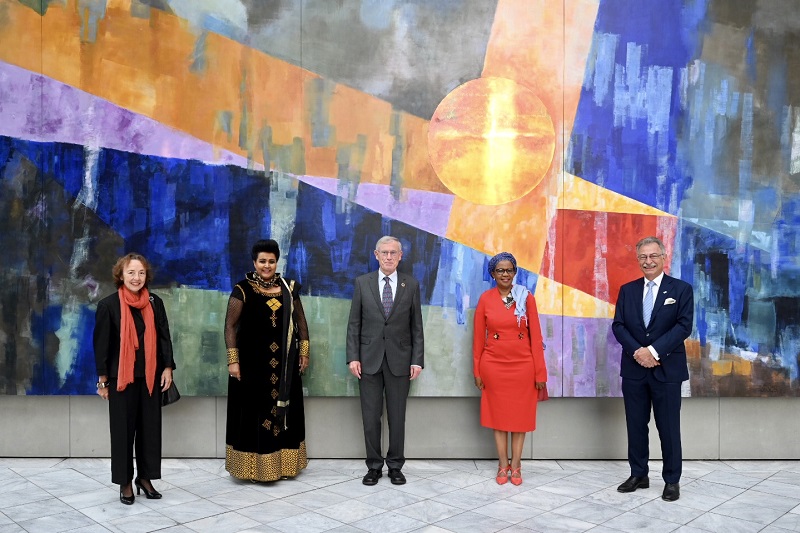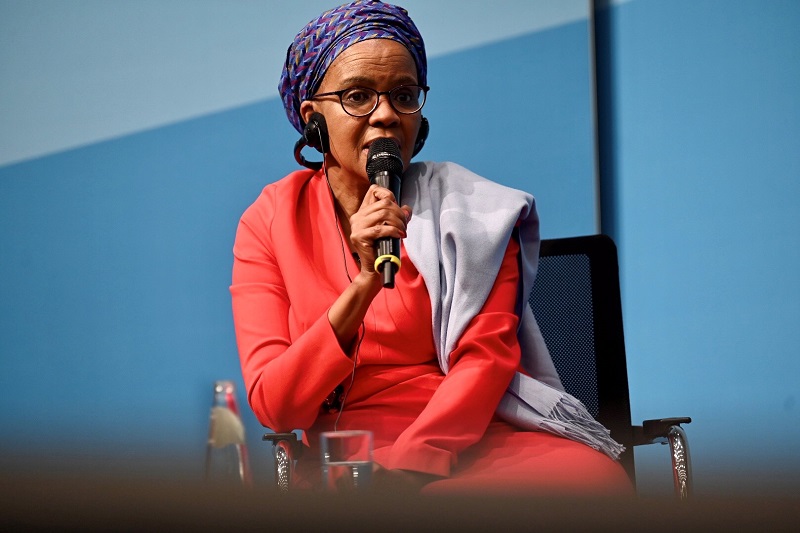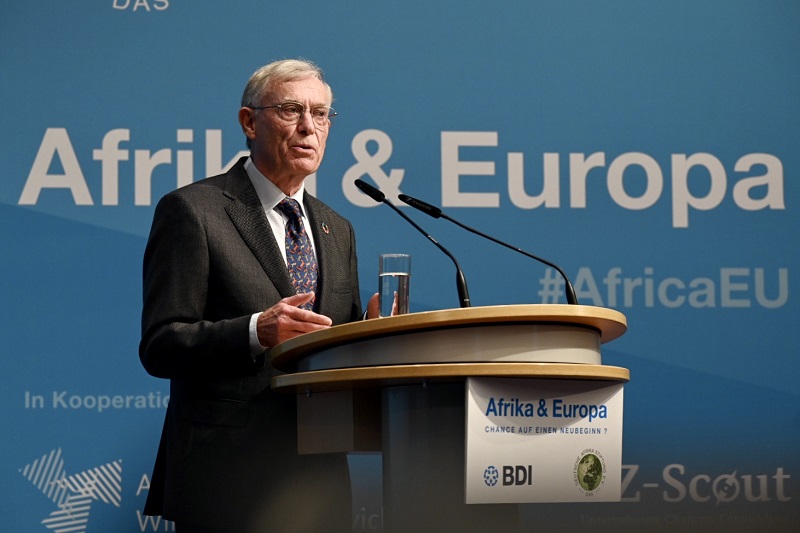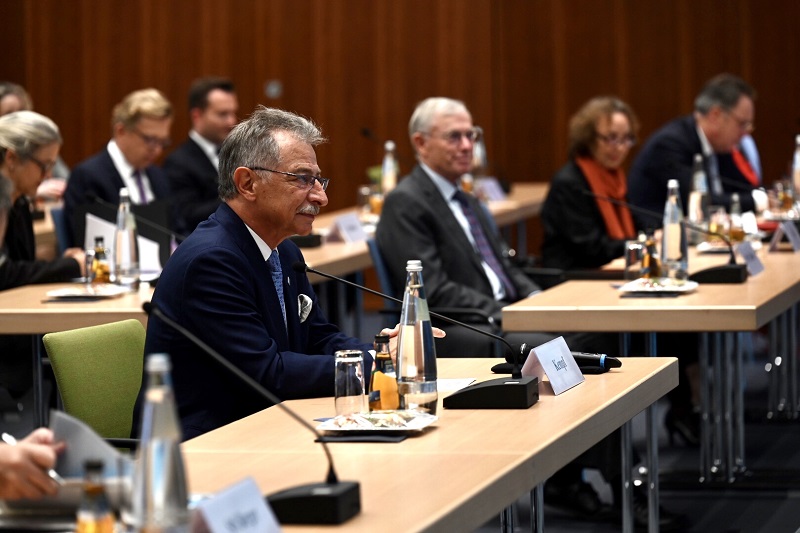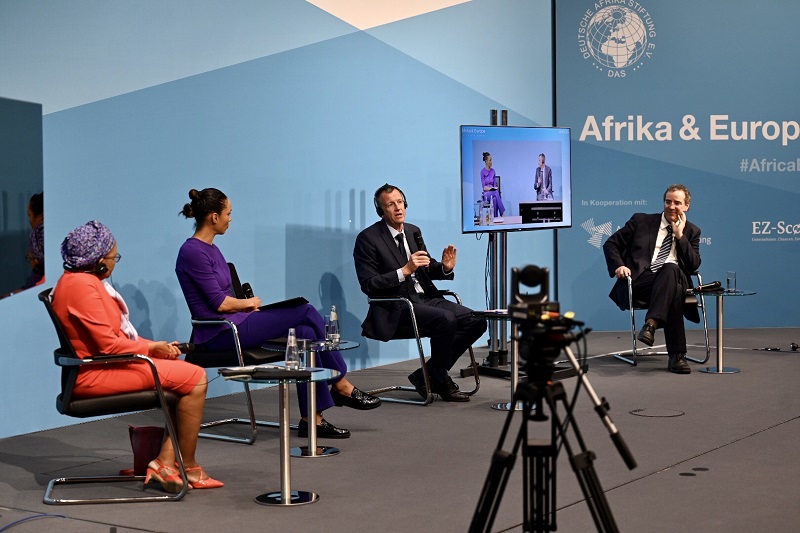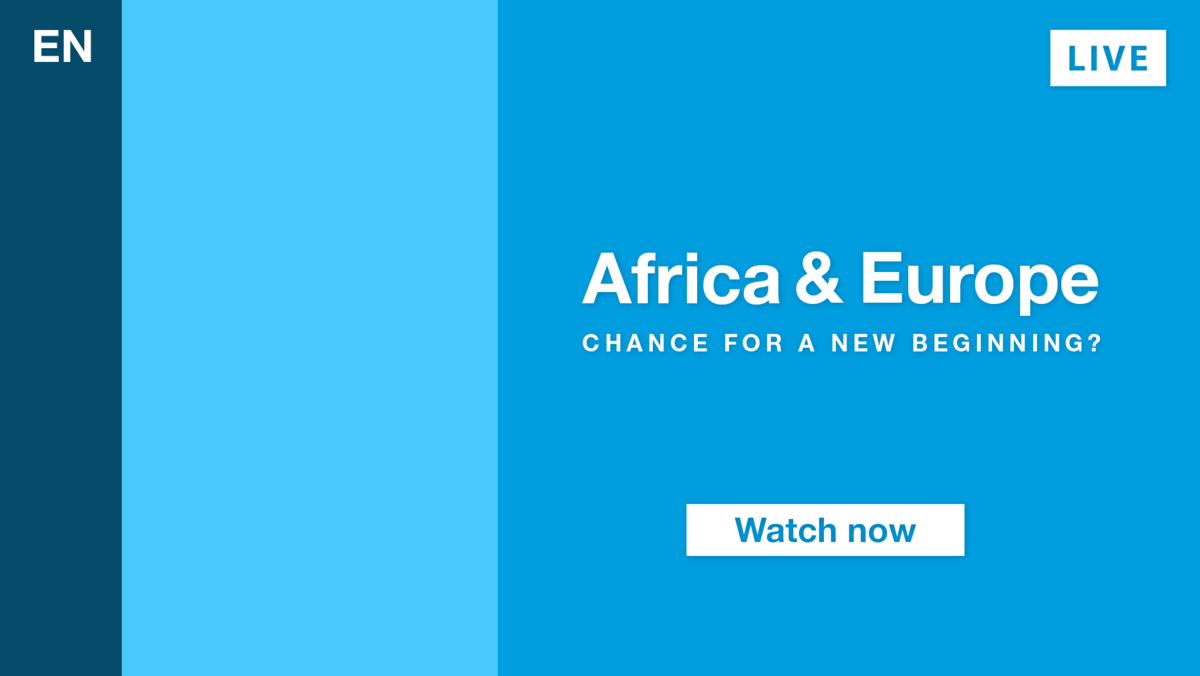Africa and Europe – A Chance for a New Beginning?
At the beginning of the year, the European Union (EU) Commission presented priorities for a new EU-Africa strategy. The aim is to strengthen the cooperation in five key areas: green transition, digital transformation, sustainable growth and jobs, peace and governance, migration and mobility. The new EU-Africa strategy will be adopted at the next summit of the African Union (AU) and the EU next year.
A new partnership - Africa and Europe in the discovery phase
Germany also is increasingly focusing its attention on Africa and the comprehensive Agenda 2063. Since July 2020, Germany has taken over the EU Council Presidency and moved Africa into the focus of foreign policy. "Everyone in Europe has understood Africa is not just a continent of opportunities. Its development will also have an essential impact on Europe," emphasises State Secretary Miguel Berger.
It is important to question your own attitude again and again. For example, the worst-case scenario at the beginning of the Corona pandemic, which many people had expected, did not materialise. Instead, it was prevented by the quick and prudent action of African governments. The AU health ministers had already agreed on a joint strategy in mid-February. "This shows that our view on Africa often says more about ourselves than about the realities on site. The 21st century could become the African-European century," says Köhler.
The Pan-African Free Trade Area is key for trade and investments
The forthcoming restructuring of European-African relations is gaining even more importance because of the Corona crisis. As a result of the Corona pandemic, the economy of sub-Saharan Africa will experience its first recession in a quarter of a century this year and is expected to shrink by two to five percent. Economic recovery requires increased investments and trade between Africa and Europe. "Here, the AU is setting a good example with the Pan-African Free Trade Area. The German EU Council Presidency should put the Pan-African Free Trade Area at the top of the agenda," stresses BDI President Dieter Kempf.
Recognizing opportunities and promoting them
In addition to economic integration, there are three essential areas for exploiting Africa's growth potential: Increasing agricultural productivity, industrialising African economies and using leapfrogging, says Jakkie Cilliers, Chairman of the Board of the Institute for Security Studies (ISS) in Pretoria, South Africa. Those should be the priorities for the future.
According to H. E. Mmasekgo Masire-Mwamba, Ambassador of the Republic of Botswana to Germany, Africa is currently also focusing on overcoming the Corona pandemic, getting access to a vaccine, expanding infrastructure and addressing climate change.
EU focuses on a stronger partnership
The EU Commissioner for International Partnerships, Jutta Urpilainen, made it clear: "Our renewed partnership with Africa is more urgent than ever. The new EU-Africa strategy is first and foremost a growth strategy. Its success depends on the private sector, investments and an open dialogue between businesspeople and politicians". A focus is on the digital transformation and the Green Deal, which will be a "pillar of the new EU-Africa partnership".
The BDI gets involved: Shaping dialogue between Africa and Europe
The BDI and the German Africa Foundation (DAS), in cooperation with the Agency for Business & Economic Development (AWE) and the EZ-Scout Programme, had invited to the hybrid event at the end of September 2020. Especially, the high number of online participants is inspiring. Over 750 participants from Germany, Europe and Africa make it clear: Africa is of interest! And in order to break out of old patterns, all actors must discuss their priorities for the future. The dialogue for a new partnership has begun.



